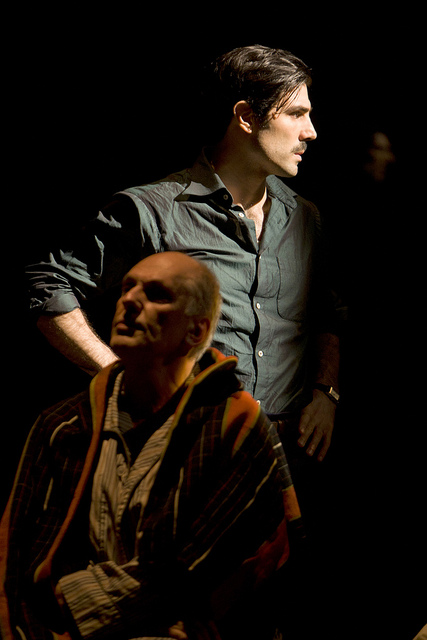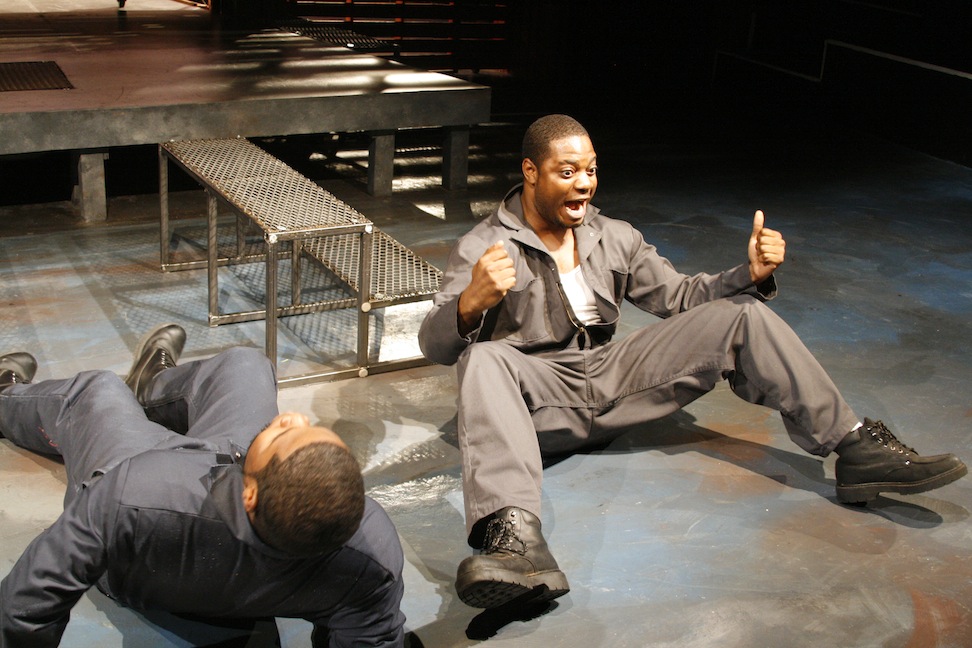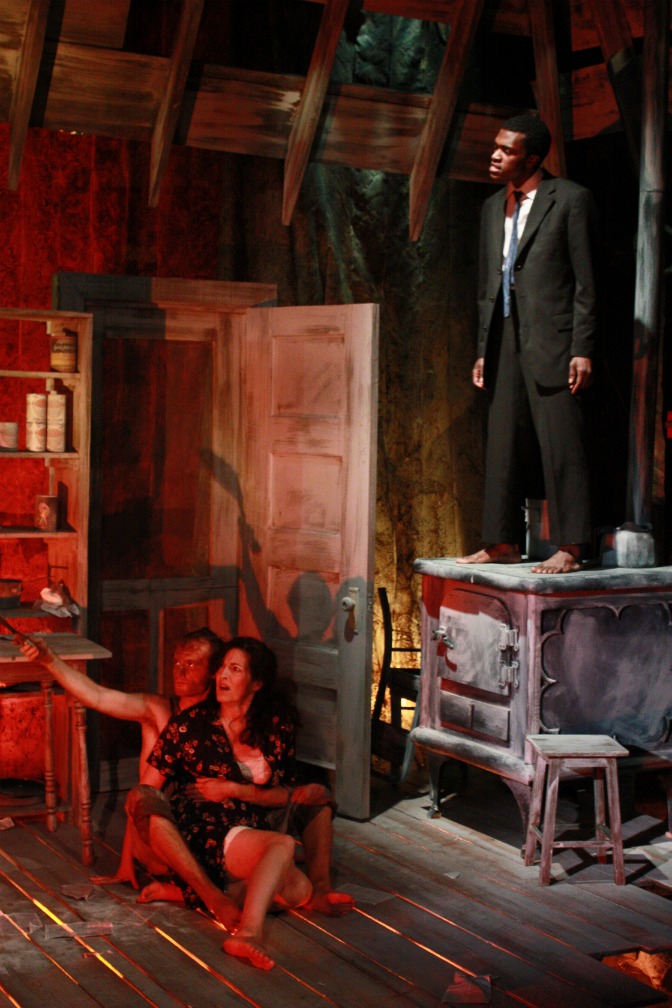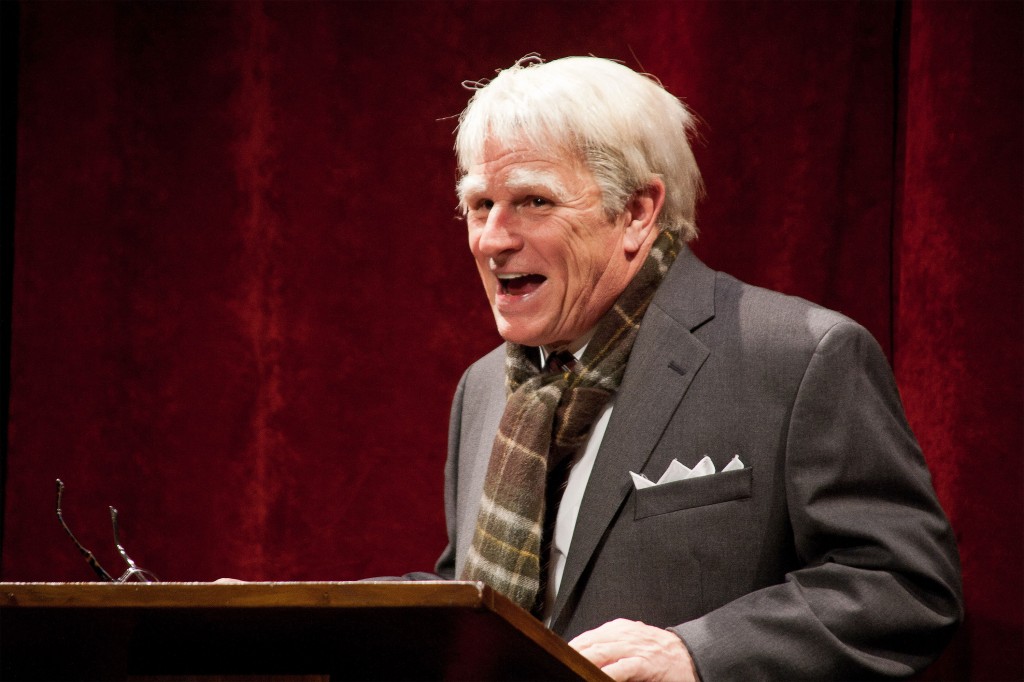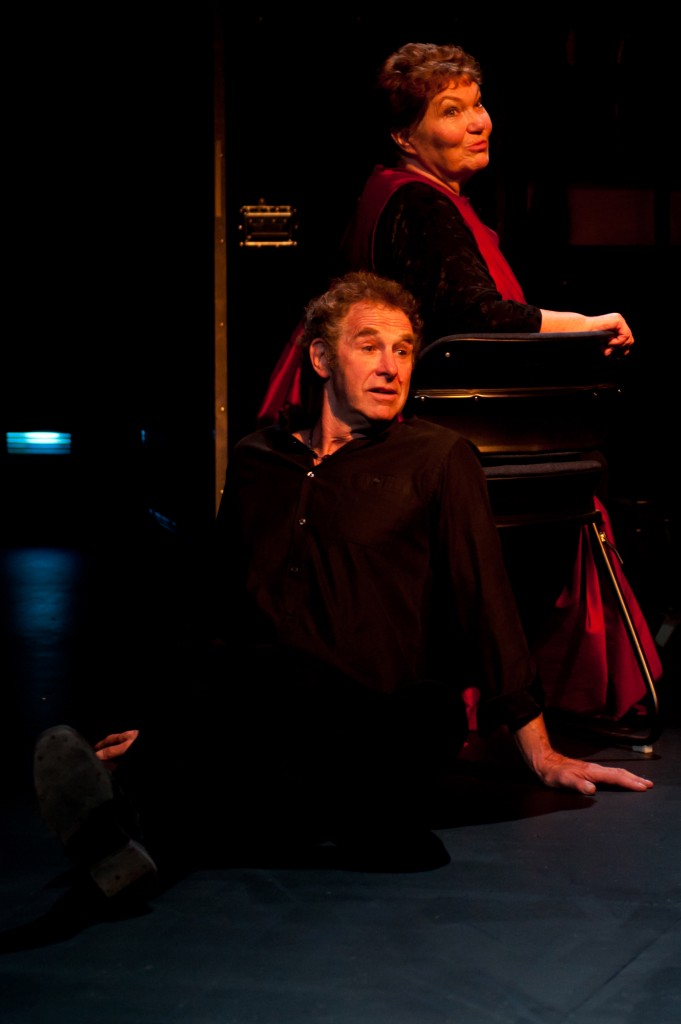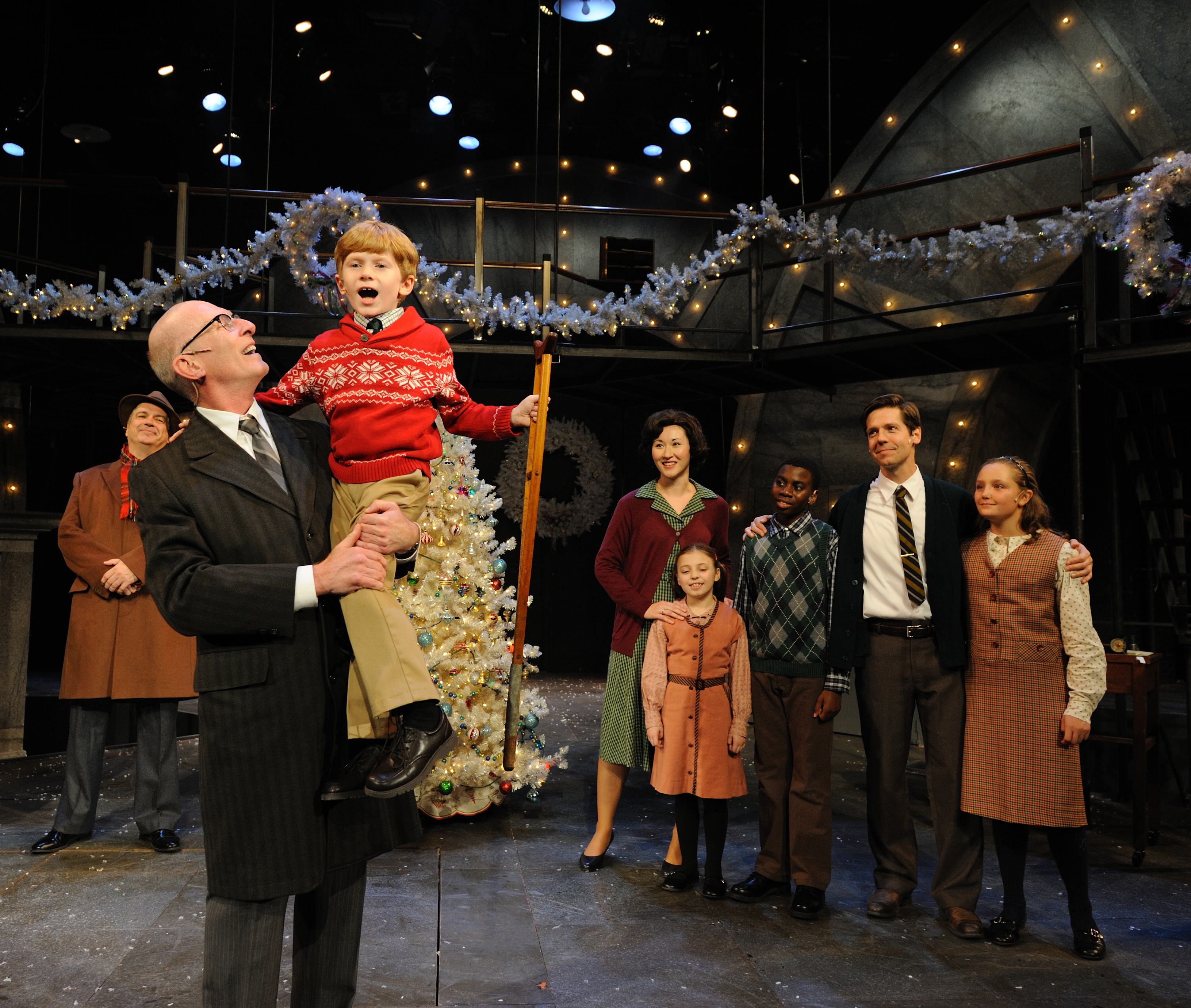
Brian McEleney as Ebenezer Scrooge and the cast of the 35th annual production of Dickens' A Christmas Carol, adapted by Adrian Hall and Richard Cumming, directed by Christopher Windom, presented by Cardi’s Furniture with supporting sponsor Amica Insurance. Performances will be November 18 - December 30 in the Chace Theater. Set design: Michael McGarty; Costume Design: William Lane; Lighting Design: John Eckert. Photo by: Mark Turek.
A Christmas Carol, adapted from Charles Dickens’ novel by Adrian Hall and Richard Cumming, original music by Richard Cumming, Trinity Repertory Company, 11/18/11-12/30/11, http://www.trinityrep.com/on_stage/current_season/ACC.php.
Reviewed by Craig Idlebrook
(Providence, RI) At first glance, it seems easy to perform A Christmas Carol; just round up the usual characters from last year and dust off the crutch. But staging a play that everyone knows can present a challenge because of audience dogma; everyone has an idea of the way the play should go. A director can be ridden out on a rail if s(he) strays too far from the collective idea of the play.
Confronted with such a double-edged sword, directors have two options. They may either decide to stage the play faithfully, trying to bring out bits of nuance to keep theater-goers and actors from falling asleep, or stage the play in a new way that helps the audience examine why it has become such a cultural icon. Continue reading
